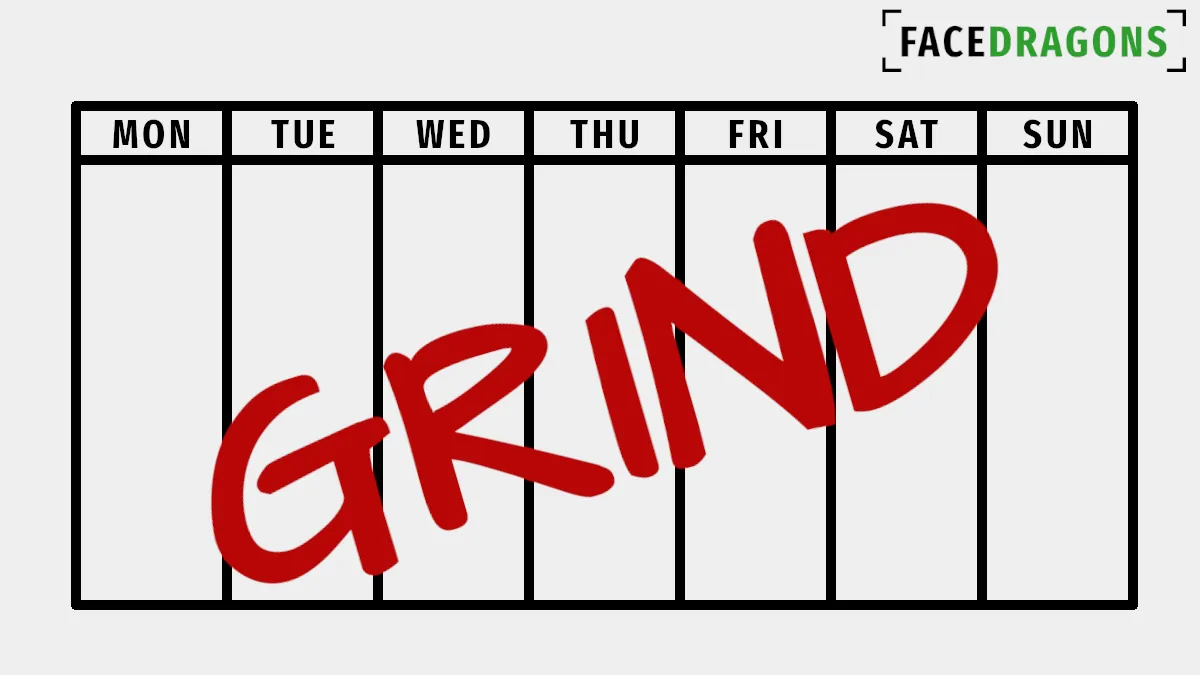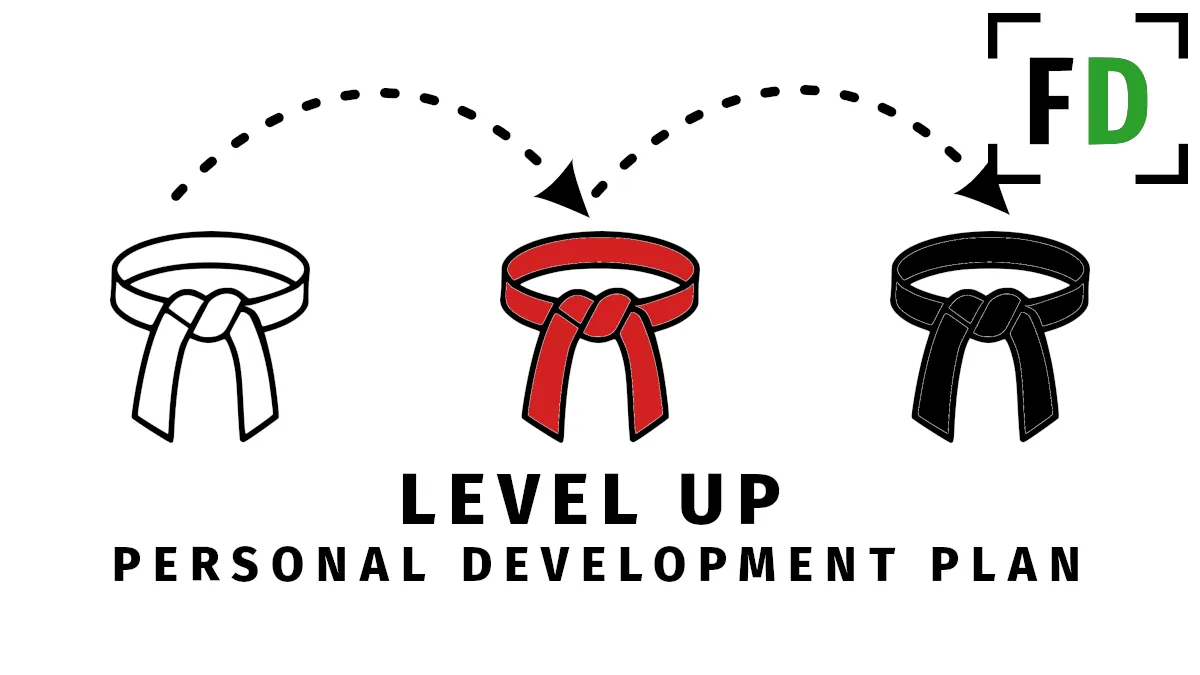Everyone already knows what grit is. You certainly know it when you see it. But before we start this guide to developing grit, let’s get clear.
Grit is enduring the suck for a reward in the future.
- Grit isn’t consistency – I juggle consistently, but it isn’t developing grit – I love juggling.
- Grit isn’t enduring pain – Stabbing myself in the hand would be painful, but there’s no upside – that’s not grit, just stupidity.
- Grit isn’t working hard – I also work hard on my business day in and day out, but it doesn’t suck.
In the last few months, I learned something new about myself and about developing grit.
Storytime
The first thing I do in the gym is warm up on the treadmill. I’ve done it for years. Sometimes, I might swap it out for the rowing machine or hit the heavy bag. The thing I always avoid, however, is the corner where all the jump ropes are hanging. I hate jumping rope.
As someone who has trained in martial arts for over three decades, I’ve done my share of jumping rope. I’ve never enjoyed it and always tried to avoid it. It always sucked!
I don’t know if it’s because I have weak ankles, bad cardio, or no rhythm, I just know I don’t like doing it.
Recently, I found a new training partner, a Lithuanian kickboxer who starts every workout jumping rope. It’s only 15 minutes long, but I really hate it.
I’ve only been at this gym for a few months, but I’ve noticed something has changed. On the days I’m just there to lift on my own, I’m walking past the treadmills and behind the heavy bags to that corner where to skipping ropes hang to endure 15 minutes of suck, 15 minutes of grit development.
I don’t know why, but the more I do it, the more I want to do it.
Why Embrace the Suck
You’ve probably heard the quote about sitting in a room alone being the answer to all life’s troubles.
But sitting alone in a room won’t fix the broken electricity lines in the town. It isn’t going to build a house or install a sewage system. And as much as people enjoy playing on their iPhones and driving Teslas, when the lights go out, or the toilets don’t flush, everything else becomes irrelevant. Only embracing the suck gets the things that matter done.
So why do you need to develop grit? You’re probably not planning on becoming a linesman or working in the sewers. How will it benefit you?
Two things.
1. Dragons Are Coming
Your life might be pretty comfortable right now. You’re earning enough money, you’re healthy, and your friends and family love you. But Dragons Are Coming.
Everyone faces terrible suffering at some point during their lives, perhaps due to sickness or injury, finances, or some other unknown situation. Those dragons are coming and will get to you. It’s just a matter of time. When they do, you can stay in the village and hide (with the women and children) and be burnt up when they start breathing fire, or you can meet them outside town and face them (like the alpha male you know you can be.)
I know which I’d prefer.
Without developing grit, you won’t have what it takes to fight the horrors of your life.
2. Good Times Are Coming
It’s not all doom and gloom.
For every terror in life, there’s also opportunity. The good times will come when the money flows easily, the days seem more cheerful, and everyone is happier. When they do, you can sit back, eat, drink, and get fat with merriment. But the hard times will hit that much harder if you do.
It’s the work we don’t do in the Spring—when the flowers are in bloom and the world is beautiful—that starves us in the winter. It’s the money you waste when business is booming that bankrupts you when times are tough. It’s the feasting in the times of plenty that brings illness in times of less.
When times are good, it’s hard not to sit back and enjoy them. That’s why you need to develop grit now.
How to Develop Grit: Step by Step
I’d like to tell you that this will be easy, but it won’t. As you already know, it’s gonna suck. But it will be worth it.
Step One: Pick Your Suck
Before you can start developing grit and turning yourself into a David Goggins-like beast of a man, you need to choose the path that sucks most for you. Jumping rope might not be what you need.
- Exercise – Running, Swimming, Aerobics, Yoga, Cycling
- Eating Healthy – Keto, Paleo, Carnivore, No Sugar
- Reading – Pick a Genre, Author, or Style
- Academic Learning – Psychology, Math, Latin
- Waking up early
- Accepting criticism instead of being defensive
- Getting outside your comfort zone – Skydiving, Ballet Classes, Social Events
- Saying “No” to people – Your Friends, Family, or Boss
- Owning up to your mistakes
- Cleaning or purging the house
- Being a beginner in a class – Dance Class, Martial Arts Class, Language Class
- Facing your fear
- Giving up something you love (like sweet food or cigarettes)
- Going to bed earlier
- Setting goals and sticking to them
- Being good to someone who doesn’t deserve it
- Standing up for yourself
- Admitting you’re wrong
I send out a newsletter on the first day of every month, The Dragon’s Eye, with a challenge for the month. If you don’t know what you should do to develop grit, sign up below, join us.
Step Two: Decide When to Do It
Once you’ve decided what you want to use for grit training, the next step is to determine when you will do it. Don’t resist this step, thinking that you’ll just do it when you have time or every so often. That’s a recipe for avoiding it.
My advice? Do it every day if you can. That might not be possible if your suck is skydiving, but if it’s giving up a bad habit, exercising, or learning a new skill, every day is best. The trick is duration, not frequency.

Step Three: Program Duration or Intensity
So sign up for an everyday training session, then start with a shorter duration.
For example, try five minutes every day for the first week if you’re running. That might sound stupid, but if you choose running because it sucks for you, five minutes will be torture. Next week, increase it to 10 minutes.
As you become accustomed to it, increase the duration or the intensity.
Don’t Make These Mistakes
Skipping a Day
“It’s just one day. It won’t make any difference.”
The problem with missing a day, whether you’re trying to develop grit, learn a language, improve your drawing ability, or whatever, is not about the missed practice; it signals to your brain that you can miss a day.
After you miss that first day, you’ll miss another, then another. Pretty soon, you won’t be training every day anymore, but you’ll tell yourself that it’s OK because you still do five days a week.
“Five days a week is still great,” you say, “I’m still going to hit my goals,” but this wasn’t about hitting your goals. It was about developing grit. “Every day” was never about the goal; it was about embracing the suck and becoming the man you know you can become. Giving yourself two days off robs you of that.
Complaining
Putting in the work is great and makes you a grittier person, but coming home and complaining about it to your wife or your friends makes your hard work null and void. No one develops grit while moaning that their arms are sore, that they are tired, or that, “I just wanna chill for a bit, I’ve had a hard day.”
No, you think [insert manliest person you can think of] complained about his hard days? Not a chance.
Try doing it without letting anyone else know. That’s a masculine trait few know about. Thats grit.
Making It Easier or More Bearable
OK, so you’re doing your jump rope (or whatever sucks for you), and you’re doing it every day, and you’re telling no one and not complaining about it. You’re embracing the suck and becoming grittier. Then a voice pops up in your head, “Maybe I should buy a better rope, one that’s a little longer, one with those cool grips on the handle, one which keeps track of my heart rate and syncs to my phone.
Stop.
Is this making it easier or harder? If it’s making it more accessible, more fun, or better in some way, it won’t help you develop grit. It’s going to do the opposite. It may improve your jump rope skills, but remember that isn’t the goal!





